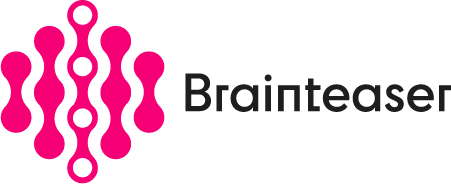BRAINTEASER was present at the Mobile World Congress in Barcelona. In addition to having a physical stand where we shared information about the project, we conducted a survey targeting various professional profiles, including representatives from the pharmaceutical industry, biomedical and other engineers, graphic designers, governance experts, life sciences consultants, and students, among others.
The goal of this survey was to explore how the adoption of digital health solutions and the integration of AI models can help address challenges and enhance the impact of technology in the healthcare sector, and more specifically in motor neurodegenerative diseases such as Amyotrophic Lateral Sclerosis (ALS) and Multiple Sclerosis (MS)
Here are the questions we asked participants:
- What do you think is the biggest challenge in integrating AI into clinical tools?
- In your experience, what is the key factor for increasing patient adoption of digital health applications?
- How do you think AI can improve the monitoring of neurological diseases such as ALS or multiple sclerosis?
- What do you see as the main barrier to implementing AI in digital health?
- What aspect of artificial intelligence gives you the most confidence in its use for healthcare?
- In your opinion, what type of data has the most potential to improve AI-driven predictions for neurological diseases?
- How do you think digital health applications can encourage patients to engage more in their own healthcare?
We’ve selected a few representative answers and summarized the key insights from the survey:
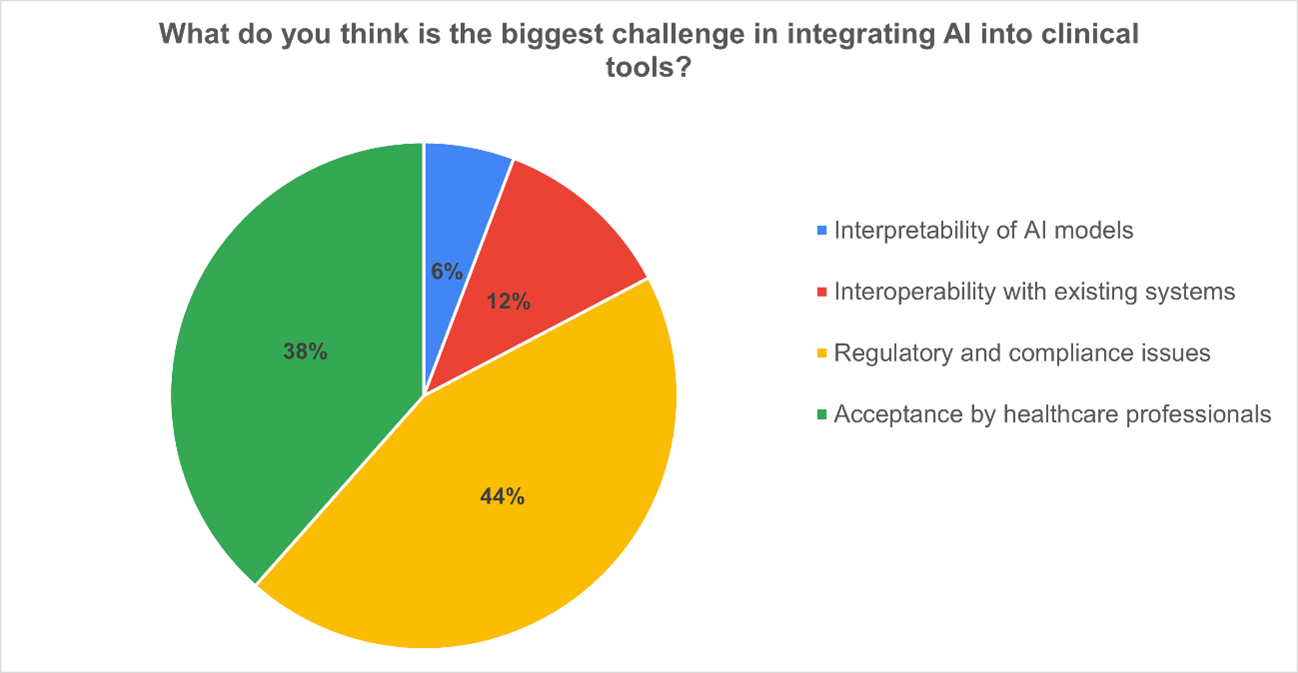
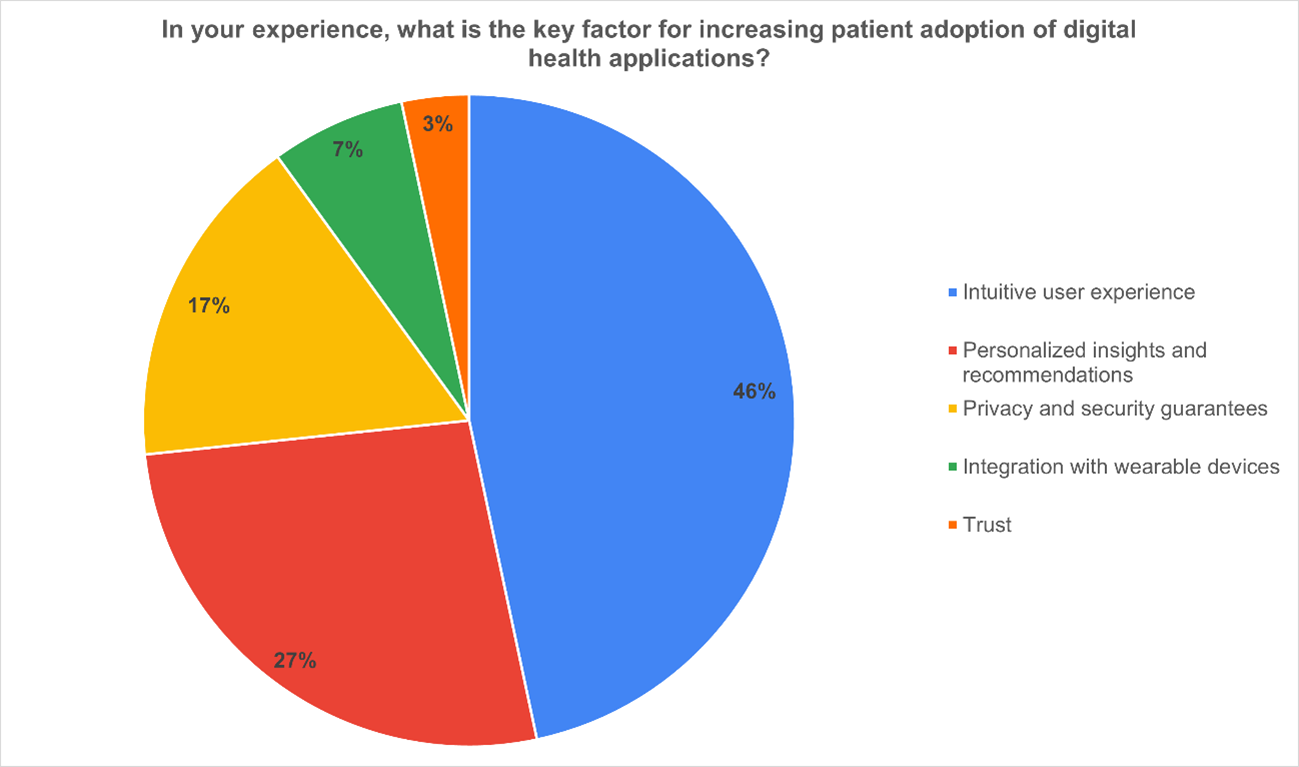
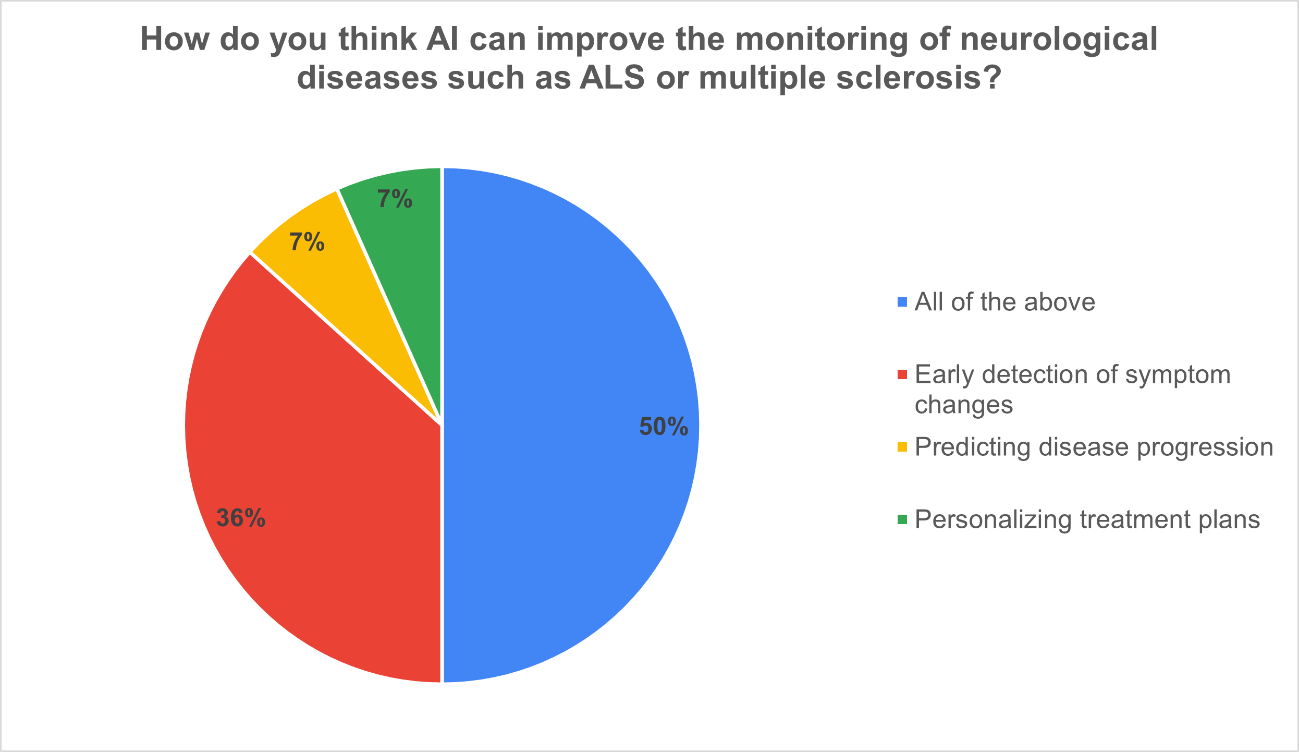
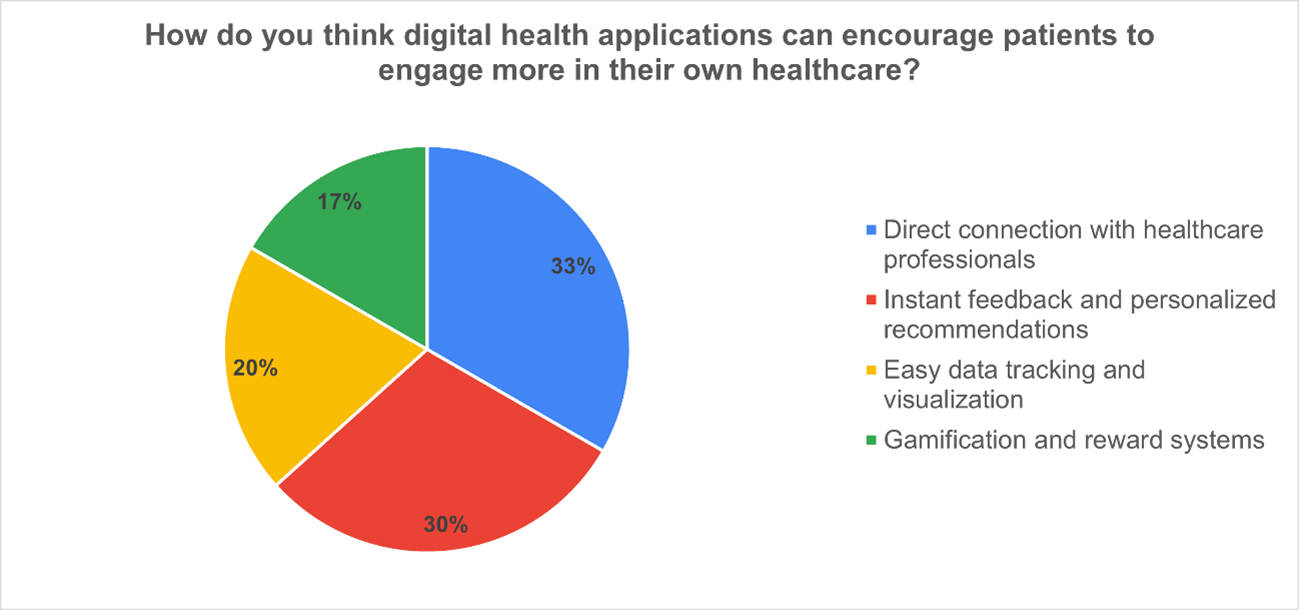
Conclusion
The insights gathered at the Mobile World Congress reinforce the importance of designing a system that is not only technologically advanced but also intuitive and trustworthy. The survey results highlight that key factors for success in digital health include a focus on intuitive user experience and addressing the acceptability by healthcare professionals.
The feedback from a diverse range of professionals confirms our project’s direction. By creating a tool that provides personalized insights and facilitates a direct connection with healthcare professionals, we are directly addressing the factors that encourage patients to engage in their own healthcare. These findings are invaluable as we continue to develop the BRAINTEASER platform and for the exploitation of the project in the future.
